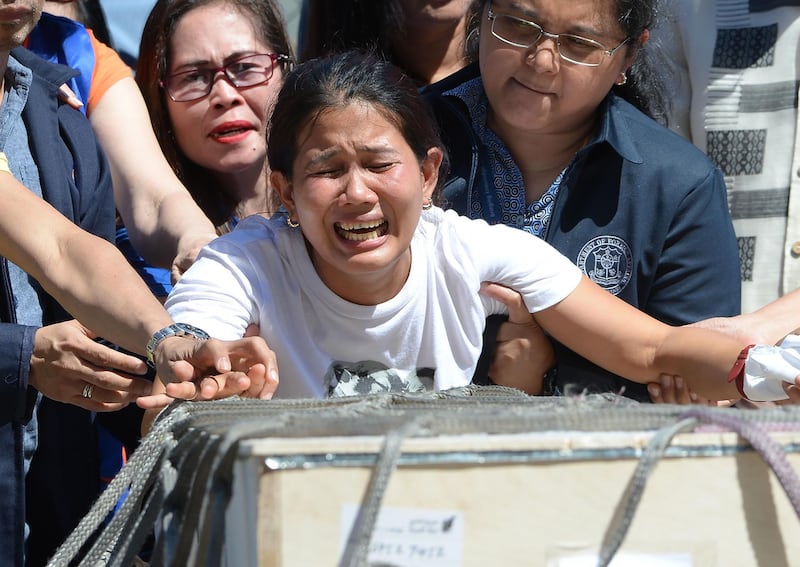A Kuwaiti court sentenced a Lebanese man and his Syrian wife to hang for killing a Filipina housemaid, a case that triggered a diplomatic spat between the Philippines and Kuwait.
The couple were convicted in their absence of "murdering the Filipina maid and placing her corpse in the freezer", the Al Qabas newspaper reported on Sunday.
In February, the body of Joanna Daniela Demafelis was found stuffed in a freezer in the couple's flat in Hawally, a residential area of Kuwait with a large expatriate population. She was killed almost a year earlier.
Last week, Nader Essam Assaf, 40, was charged by a south Lebanon prosecutor after confessing to the murder, according to the state-run National News Agency.
His Syrian wife, Mona, is in custody in Damascus, where the couple were arrested a month after the discovery of the corpse.
Under Kuwaiti law their sentences can be appealed.
_______________
Read more:
Both suspects in Kuwait murder of Filipina held
Murder shocks Filipinas in Kuwait, but some vow to stay
_______________
The discovery of Demafelis' body prompted Philippine President Rodrigo Duterte to order all Filipino workers in Kuwait to return home. Alleging widespread abuse of Filipino expatriates, he also banned citizens from applying for work visas in Kuwait.
Kuwait and the Philippines have since signed a deal to regulate the working conditions of domestic workers.
Cases of abuse have been documented in countries across the Arabian Gulf. A UN report in March said more needed to be done to prevent the exploitation and abuse of domestic workers in the Middle East.
Remittances from Filipinos working abroad serve as a lifeline to the Philippines economy. Often, the minimum wage set for Filipinos in GCC countries is higher than what skilled workers earn in the Philippines, according to government figures.





